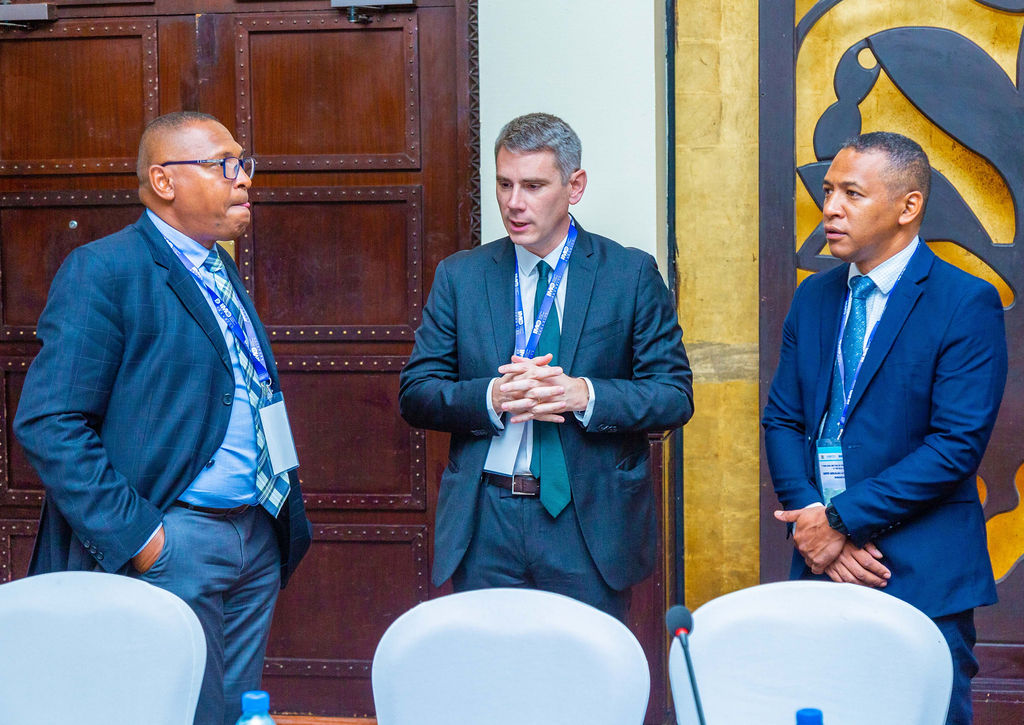DCoC Achievements
Key Strengths
- Network of National Focal Points – ensures coordinated, smooth, and effective communications through national focal points and information sharing centres;
- Information Sharing Network – Increase regional awareness of incidents
- Enhanced Civil / military cooperation- Enabled cross-agency, cross-ministry and cross-border communication and trust
- The DCoC Trust Fund – Facilitates better resource mobilization and capacity building coordination
- The development of the DCoC Information Sharing Network Strategy & Roadmap
- DCoC Capacity Building Matrix outlining regional states needs and priorities
- Progressing the establishment of the Regional Maritime Security Strategy to be finalized and adopted in 2025
- Established thematic sub-working groups to maximize enhancement of regional capacity building activities that align with the broadened scope under the revised Code of Conduct
- Established Working Group Three on Operational Cooperation and Coordination at Sea
Summary of achievements
The accomplishments made under the Code since 2010, include a functioning network of Information Sharing Centres, a regional training coordination mechanism that had benefitted 1678 students by December 2020, and enhanced Maritime Domain Awareness. So far, many of the regional States have reviewed their laws to include piracy as a crime that can be punished nationally and increased awareness of the need to be able to enforce national laws in the maritime domain. A growing number of coastal maritime surveillance systems have been implemented that are assisting the small naval and coastguard forces in the region to focus their limited resources where they are most needed and to conduct an increasing number of cooperative operations at sea.
At national level, there has been notable improvements in interagency cooperation and all of Government approach in dealing with maritime security issues, as well as more commitment to implement programmes that will lead to enhanced Maritime Domain Awareness (MDA).
A detailed comparison of Contributions vis-à-vis Achievements made under the support from the multi-donor Trust Fund is attached below:
The Jeddah Amendment has evolved to be the main regional focus for maritime capacity building coordination and offers an excellent framework for coordination of technical assistance provided by the international community.


 ~Mohammed Al-Magashi, Yemen NFP
~Mohammed Al-Magashi, Yemen NFP
